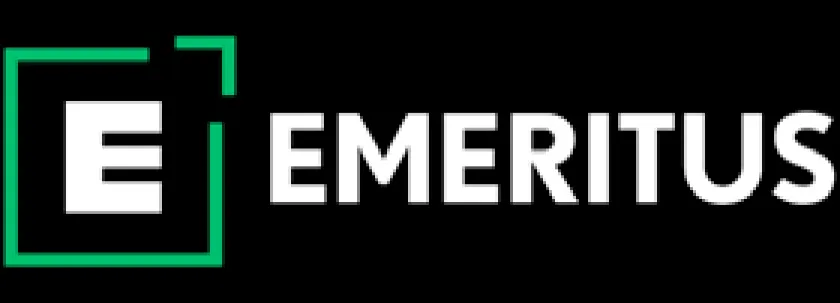Decoding Success: Top 25 Corporate Jargon Every Professional Needs to Know

Comprehending corporate jargon is essential for professionals across diverse industries. It enables them to grasp specific directives and significantly improve their work efficiency. Additionally, becoming proficient in the business’s distinct language can greatly assist employees in prospering in their corporate roles. This article, then is a must-read! We present a curated list of 25 key terms and phrases invaluable for anyone in a business-related position.
Understanding Corporate Speak
Corporate jargon, often referred to as corporate speak or lingo, plays a pivotal role in the communication landscape of any business environment. Additionally, it encompasses a specialized set of terms, phrases, and acronyms unique to the business and corporate world. Over time, this jargon becomes ingrained within the corporate vocabulary.
The Rationale Behind Corporate Lingo

Despite the criticism and occasional ridicule it faces, corporate jargon persists for several compelling reasons:
Efficient Communication
It is a concise means to express complex ideas, instructions, or pivotal issues, streamlining communication and ensuring clarity among team members.
Professional Image
Utilizing corporate lingo often aims to project a more knowledgeable or professional demeanor. Therefore, corporate speak enhances one’s perceived expertise within a given field.
Habitual Usage
Lastly, the constant nature of using such jargon plays a significant role in clearer communication. For this reason, these terms and phrases signify a common linguistic paradigm for workplace interactions.
ALSO READ: The Best Career Options and Courses After 12th Commerce in 2024
Leadership Courses
Top 25 Corporate Jargon
1. Actionable Tasks
An actionable task refers to any specific activity or job that someone or a group must complete. Think of it as a particular entry in a checklist.
Example: Updating the project timeline document is an actionable task assigned to the project manager.
2. ASAP (As Soon as Possible) This acronym signifies the need for quick or immediate action or response to a request or task.
Example: The finance team needs the budget report ASAP to finalize next quarter’s funding allocations.
3. Backburner
Putting a task on the backburner means lowering its priority level or delaying its execution.
Example: Due to the upcoming product launch, revising the employee handbook has been put on the back burner.
4. Baked Into
This phrase shows that a plan or project inherently includes certain aspects from the beginning.
Example: Sustainability practices are baked into the company’s new business model.
ALSO READ: The Most Efficient Strategies for Lifelong Learning: Top 5 Tips and Benefits
5. Over the Wall
We use this term when passing crucial information to another party, such as another department within the organization or a client.
Example: Once the design team completed the prototype, they threw it over the wall to the marketing team.
6. Bandwidth
This corporate speak refers to an individual’s or team’s capacity to handle additional tasks or responsibilities.
Example: Before committing to another project, check if your team has the bandwidth to meet the current deadlines.
7. Bleeding Edge
Describes the most advanced level of technology or development.
Example: The company’s new smartphone model is on the bleeding edge, featuring the latest AI technology.
8. Core Competency
This corporate jargon identifies an organization’s or individual’s primary strength or specialized skill set.
Example: The firm’s core competency lies in its exceptional customer service, setting it apart from competitors.
9. Out of Pocket
This corporate jargon describes a scenario in which someone will be unavailable to be contacted for a specific period of time.
Example: The manager will be out of pocket next week due to a conference abroad.
ALSO READ: 5 Proven Methods and Top Tips to Boost Your Personal Productivity
10. Brain Dump
This corporate lingo means jotting down all ideas, thoughts, or information onto a medium during a creative thinking or problem-solving session.
Example: At the start of the workshop, participants were encouraged to perform a brain dump, capturing all their initial ideas on sticky notes.
11. Breaking Down Silos
This phrase emphasizes enhancing collaboration and interaction among different teams or departments.
Example: The company initiated a cross-departmental project to break down the silos between the software and hardware teams, fostering better innovation and understanding.

12. Bring to the Table
This corporate jargon refers to the unique skills, knowledge, perspectives, or contributions someone offers to a project or organization.
Example: The new marketing director brings over a decade of digital advertising experience to the table.
ALSO READ: The Ultimate Guide for Developing a Growth Mindset: 6 Tips for Success
13. Circle Back
To circle back means revisiting a topic, issue, or discussion later for further exploration or decision-making.
Example: After the initial review of the budget proposals, the finance team will circle back next week with final adjustments.
14. Thought Shower
This corporate lingo refers to a collaborative session to generate innovative ideas or solutions through group discussion.
Example: The team held a thought shower to develop creative marketing strategies for the new product launch.
15. Deck
A deck is a digital presentation commonly used in business settings to convey information or proposals.
Example: The startup founder prepared an investor deck to showcase the business model.
16. Deep Dive
Undertaking a deep dive involves conducting a comprehensive and detailed examination of a specific subject or project.
Example: The research team is taking a deep dive into market trends to identify potential opportunities.
ALSO READ: How to Upskill and Reskill: A Guide to the Top 5 Strategies
17. Deliverables
In corporate speak, deliverables refer to the specific outputs or results expected to be completed and delivered as part of a task, project, or responsibility.
Example: The project’s deliverables include a final report, a prototype, and a customer feedback analysis by the end of the month.
18. Leverage
To leverage something means to use it to its maximum advantage, especially resources or positions, to achieve a goal or improve outcomes.
Example: The company plans to leverage its extensive network of industry contacts to expand its market reach.
19. Drill Down
This corporate speak refers to examining something in detail to uncover essential or underlying information.
Example: During the meeting, the team decided to drill down into the sales data to understand the factors behind the recent decline in revenue.
20. Tiger Team
A tiger team consists of specialists brought together to solve a specific issue or tackle a particular challenge, leveraging their collective expertise.
Example: The company assembled a tiger team of IT security experts to address the cybersecurity breach.
ALSO READ: What are the Top 10 Areas to Upskill in 2024? Hiring Managers Tell Us
21. Game-Changer
This corporate speak refers to an innovative idea, strategy, or product that significantly alters the competitive landscape, offering a substantial advantage.
Example: The company’s new eco-friendly packaging solution was a game-changer, setting a new industry standard.
22. Get on Board
This corporate jargon means to agree with or support a particular idea, plan, or strategy.
Example: The management team decided to get on board with the new digital transformation initiative, recognizing its potential to enhance operational efficiency.
23. Good to Go
This phrase signifies that something has been checked, approved, or completed and is ready to proceed to the next stage or launch.
Example: After the final review, the product manager confirmed that the software update was good to go and scheduled for release.
24. Hard Stop
A hard stop is a non-negotiable end time for a meeting or activity due to subsequent commitments or constraints.
Example: The project briefing has a hard stop at 11 AM because the client has another essential engagement immediately afterwards.
25. Headwinds
This corporate lingo refers to external factors or obstacles that hinder progress or growth, making it more challenging to achieve goals.
Example: The startup faced headwinds due to regulatory changes in the industry, requiring a strategic pivot to continue its expansion.
ALSO READ: Quick Tips to Take Charge of Your Career and Bag That Dream Job
Understanding corporate jargon is pivotal for effective communication in the workplace. However, advancing your career requires more than familiarity with professional lingo; it necessitates continuous upskilling and industry insights. Emeritus’ online courses provide comprehensive programs to enhance your skills and knowledge.
Write to us at content@emeritus.org






